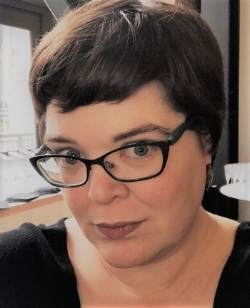Episode 123: Fair Pay, part 1: It Begins with Babysitting
/“I found that very puzzling that most of the time mothers did the negotiating with the babysitters. But even they had biases about what to pay men and women.”
“Female MBAs who were asking for raises just as much as their male counterparts got them far less often. ”
Yasemin Besen-Cassino
In this first episode of a two-part show on pay we look at the pay gap, but we start a lot earlier than most people do - with teenagers.
My first guest, Yasemin Besen-Cassino, has found a pay gap between men and women first emerges at age 14. More and more boys are babysitting these days, and lo and behold, they're paid more than girls. Surprised? So was I. Until I thought about it. It's fascinating stuff. Yasemin is the author of The Cost of Being a Girl.
Lydia Frank
My second guest, Lydia Frank, is a VP at Payscale. We discuss the motherhood penalty, pay transparency, and why female MBAs can't seem to get a break, despite their excellent qualifications. Lydia and I will continue our conversation in part two of the show, which is out next week.
We'll also pay a quick visit to Iceland to talk about that country's new equal pay law, which puts the onus on employers to prove they're paying their people fairly.
You can also read a transcript of the show.
Show notes: Here's the podcast episode on the pay gap that I recommended during the show, from HBR's Women at Work podcast. It features Professor Claudia Goldin among others. I thoroughly enjoyed the whole series.
Here's an interview with Goldin and a video explaining her research on the part flexibility - or lack of it - plays in the pay gap.
The BBC show Analysis did a great episode earlier this year on why and how women are biased against women, and what we can do about it. Find it on your podcast app by searching for 'Analysis.'
Here's more information on Payscale's survey that revealed female MBAs get the raise they ask for less often than their male counterparts.
And here's a recent Financial Times article called the MBA Gender Pay Gap that backs up those findings, in which three women speak honestly and mostly anonymously about their attempts to get equal pay.













